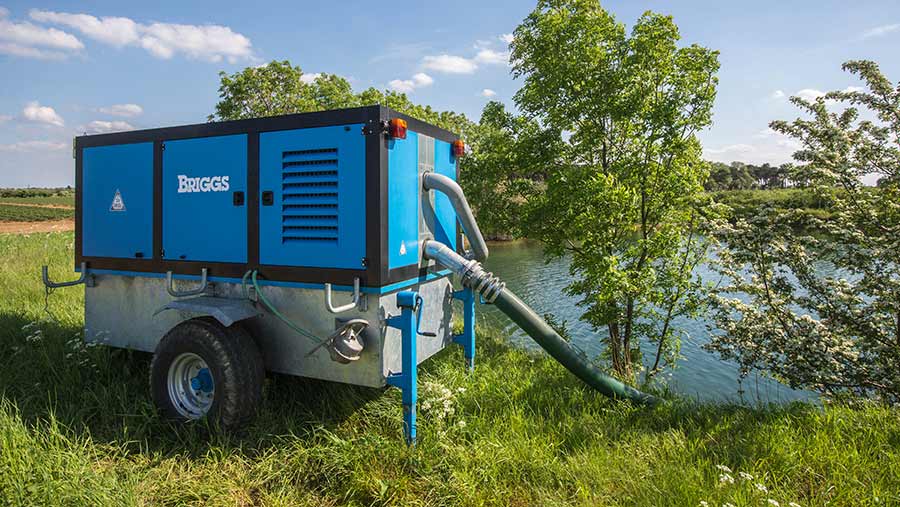New water abstraction charges set to come into force
 The EA says the new schedule will charge big users more © Tim Scrivener
The EA says the new schedule will charge big users more © Tim Scrivener Farm businesses that extract water in areas of restricted availability in England face higher charges from next month.
Businesses, including farmers and water companies, must hold a licence to abstract more than 20cu m of water a day from a river, stream, canal or groundwater, and pay new charges for this from 1 April 2022.
See also: 12 tips to save water on your farm
The Water Resources Review of Charges was published by the Environment Agency (EA) on Wednesday (9 March). It aims to provide a fairer system where people pay for the services they receive and those abstracting a lot of water will pay more.
The NFU says there will be “winners and losers” from the new charging system. About half of farm abstractors will see their charges increase, while the remainder will see them fall.
Impact on agriculture
The EA has published an economic impact statement (PDF), which includes data showing the impact on agriculture and licence holders who will see an increase.
It shows that 1,536 licence holders (with a total of 2,750 licences held) will see an average increase per licence of £151, generating additional income of £415,241. The data excludes licences holders who will see a decrease in charges.
The agriculture sector will now account for 3% of the total annual charges, down from 4%. The average annual charges for all agricultural abstraction will decrease.
Overall, the sector will see a 13.4% reduction in annual charges because the majority of agricultural abstractions are of smaller volumes, which will benefit from lower charges.
The EA says 54% of agriculture sector licences (5,830 of 10,823) are being charged less than £200 under the new scheme, and 80% of agricultural licence holders will see either a decrease or an increase of less than £100.
New licences
However, any farm business making an application for a new licence or seeking to vary an existing one should expect to pay much higher charges.
Suffolk-based grower Andrew Blenkiron, who manages the 4,450ha Euston Estate, south of Thetford, invested £700,000 in two farm reservoirs after dry weather reduced his irrigated cropping area by 20% in 2012.
Mr Blenkiron said he was still waiting to fully understand the impact of the new charging system on his business.
“It’s disappointing that some people have seen significant increases,” he said. “The cost for applying for new applications and for any changes to licences will increase significantly.
“If I wanted to apply for a change to my licence for trickle as opposed to spray irrigation only, it used to be £165. But now I would have to pay a lot more so they [EA] could investigate it thoroughly.”
According to the EA, the new charges – the first change in the past 10 years – will be based on the volume of water taken from the environment, where the water is taken from, and how much of that water is returned to the environment.
It is expected that the new charging framework across all industries will secure £25m in additional income each year to protect access to water and meet environmental challenges, including to help protect England’s rare and sensitive habitats, such as chalk streams.
Digital upgrade
The EA says it will use this extra income to modernise the water abstraction licensing system – which is currently mainly paper-based under Environmental Permitting Regulations (EPR) – through digital transformation.
Sir James Bevan, chief executive of the EA, said: “In the face of the climate emergency, population growth and rising demand for water, we need to ensure that all those who use water, and rely on it for their business, can continue to do so now and into the future, as well as better protecting our rivers and aquifers.
“As part of this we need a system that allows us to charge fully and fairly for the services we provide to preserve water supplies and help businesses meet their needs in a sustainable way that protects the environment.”
